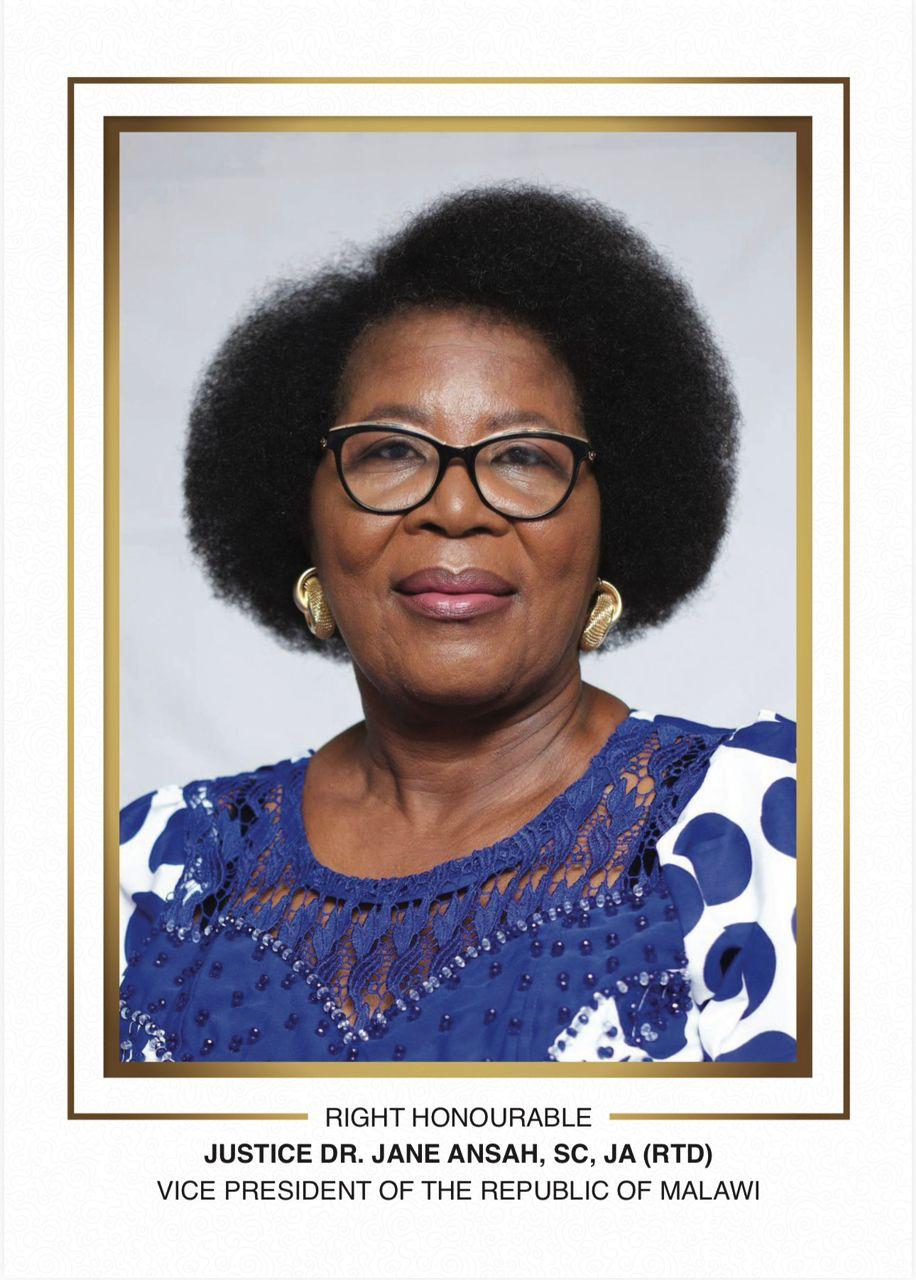
Profile of the Right Honourable Justice Dr. Jane Mayemu Ansah, SC, JA (Rtd)
Dr. Jane Mayemu Ansah, SC, JA (Rtd) (née Mjojo) is a distinguished legal scholar, public servant, and faith leader whose career spans over four decades of transformative leadership. Born on 11th October 1955 in Njolomole Village, Ntcheu District, she is a proud Ngoni woman and Impi to Inkosi ya Makosi Gomani the Fifth.
She holds a PhD in International Human Rights from the University of Nottingham, an LLM from SOAS University of London, and an LLB from Chancellor College, University of Malawi. Her legal expertise is complemented by specialized training in judicial administration and legislative drafting.
Dr. Ansah began her career as a State Advocate in 1978 and rose to become Malawi’s first female Attorney General (2006–2011). She served as a High Court Judge, Justice of Appeal in the Supreme Court, and Chairperson of the Malawi Electoral Commission. Her work has shaped constitutional law, human rights, and democratic governance both nationally and across Africa.
She has authored numerous papers and publications, including The Right to Development and the Malawian Law, and has contributed to landmark legal reforms and international conferences. Her board service includes the African Union, World Vision, and the Malawi Examination Board.
A Senior Pastor at Christ-Citadel International Church, Dr. Ansah is married to Bishop Dr. Joseph Addo Ansah, and together they have three children. Her leadership is grounded in faith, justice, and a lifelong commitment to national service.
Her inauguration as Vice President marks a new chapter in Malawi’s journey guided by wisdom, integrity, and a vision for inclusive progress.
